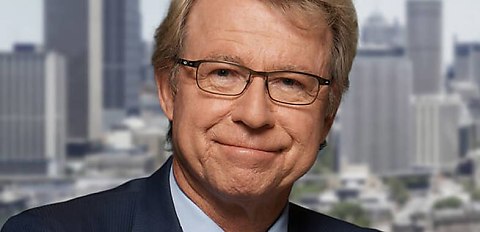AMP chief economist Shane Oliver and CBA economist Stephen Halmarick have outlined that it is “likely” the cash rate has peaked and that the nation could see rate cuts starting in the March quarter of 2024.
4 rate cuts in 2024: AMP
While AMP’s chief economist had forecast that the central bank would hold rates faster than they had done, he noted in an insights piece released yesterday (13 September), that the Reserve Bank of Australia (RBA) recently said the 400-basis-point increase between May 2022 and June 2023 was working to establish a “more sustainable balance between supply and demand”.
Mr Oliver said: “We were way too optimistic as to how far the RBA would raise the cash rate, but our view remains that the RBA has done more than enough to bring inflation back to target, and so we are likely at the peak.”
Reflecting that rate hikes typically impact the economy “with a lag of a year or more”, this recent cycle had taken longer to flow through to a customer’s back pocket (and therefore cool inflation) due to the savings buffers that had been built up over the pandemic and the large proportion of borrowers on fixed rates.
However, he noted the recent slump in building approvals, which he said “points to weak in-home building”, as well as cooling labour market indicators “including job vacancies and hiring plans” and unemployment, which “looks to have bottomed at 3.4 per cent late last year”.
Mr Oliver added that he believed the RBA would turn away from raising interest rates any further as it would “only add to the already very high risk (at around 50 per cent) of recession”.
“At the very least, the economy is likely to have slowed substantially by late this year, with unemployment starting to rise faster than the RBA is allowing for. This will likely see inflation fall next year faster than the RBA expects,” the chief economist wrote in his insights report.
“As a result, our base case is that the cash rate has peaked ahead of rate cuts starting in the March quarter next year, which should help growth then stabilise and improve later next year.”
Mr Oliver added: “Absent much stronger wages growth, a further drop in unemployment and/or a reversal of the downtrend in inflation, the RBA is expected to leave interest rates on hold for the rest of this year ahead of rate cuts next year.
“We are allowing for four rate cuts through 2024 as the economy and inflation slow further.”
RBA will be turning its mind to cuts ‘as early as March’: CBA
Commonwealth Bank of Australia (CBA) chief economist Stephen Halmarick recently concurred that March 2024 would likely be the time when rate cuts begin.
Speaking at CBA’s Household Spending Insights update, Mr Halmarick said: “In terms of our cash rate forecast, we haven’t changed that for a little while now. Our view is the Reserve Bank has peaked ... the 4.1 per cent cash rate set in June, we think, is the peak.
“Our current view is that the Reserve Bank will turn its mind to rate cuts as early as March next year, remembering the March meeting next year will be the 19th of March.
“We think this softness in consumer spending, as measured by the HSI (household spending index) [is] going to continue through into 2024 as the lag effect of the higher interest rates continues to impact on household balance sheets, and the RBA will be able to start lowering rates in the first half of next year.”
Rates on hold until September: Westpac
While major bank Westpac also believes Australia has reached its terminal cash rate, its chief economist, Bill Evans, has suggested it would not be until later in 2024 that the first-rate cut would occur.
Mr Evans commented: “We concluded that rates would remain on hold until the September quarter next year when the first rate cut of 0.25 per cent can be expected.”
More rate hikes may be on horizon: NAB, ANZ
However, NAB remains an outlier, holding a forecast that the RBA cash rate will increase to 4.35 per cent in December 2023, before beginning its reduction in September 2024.
When previously lifting its cash rate forecast, the NAB Group economics team stated: “While inflation has clearly peaked, and we (like the RBA) see inflation returning to the band by 2025, the extended period of inflation above target amid a tight labour market poses the risk of stronger wage and price expectations becoming embedded.”
While ANZ head of economics Adam Boyton believes Australia has already hit its terminal cash rate, he recently suggested the RBA looked to be on an extended pause as it tries to monitor the impact that the 400 basis points of monetary tightening has had on the economy.
Writing last week, he said: “As for monetary easing, we continue to see that as a considerable way off. Indeed, if the bank adjusts policy this year or even early next, rate hikes are much more likely than rate cuts.”
[Related: Recession risk ‘now very high’: Shane Oliver]

